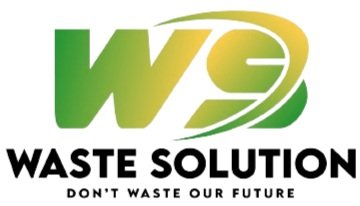Scrap Metal: How to Dispose of Ferrous and Non-Ferrous Metals
Properly identifying ferrous and non-ferrous metals is the first step in effective disposal.
Understanding the proper disposal methods for ferrous and non-ferrous metals is essential for environmental conservation and efficient resource management. Both types of metals play crucial roles in various industries, but their disposal requires different approaches. Engaging professional waste disposal services can streamline the process, ensuring compliance with local regulations and promoting sustainable practices.
Identifying Ferrous and Non-Ferrous Metals
Ferrous metals contain iron and are typically magnetic. Common examples include steel, cast iron, and wrought iron. Due to their strength and durability, these metals are widely used in construction, automotive, and manufacturing industries. On the other hand, non-ferrous metals do not contain iron and are usually non-magnetic. Examples include aluminum, copper, brass, and lead. Non-ferrous metals are prized for their resistance to corrosion, lightweight properties, and electrical conductivity.
Properly identifying ferrous and non-ferrous metals is the first step in effective disposal. Ferrous metals are often heavier and magnetic, while non-ferrous metals are lighter and non-magnetic. Using a magnet is a simple way to differentiate between the two types. This distinction is important because it determines the appropriate recycling or disposal method.
Recycling Ferrous Metals
Due to their high demand and recyclability, recycling ferrous metals is straightforward. Scrap yards and recycling centers accept various ferrous metal items, including old vehicles, household appliances, and construction materials. The process involves collecting, sorting, and shredding the metals before melting them down for reuse.
Professional waste disposal experts play a vital role in the recycling of ferrous metals. These experts handle the collection, transportation, and processing of scrap metal, ensuring that it is properly recycled and kept out of landfills. Utilizing their services can save time and effort while promoting environmentally friendly practices.
Recycling Non-Ferrous Metals
Non-ferrous metals are equally important in the recycling industry. Their high value and unique properties make them ideal for reuse in various applications. Common non-ferrous metal items for recycling include aluminum cans, copper wiring, brass fixtures, and lead-acid batteries.
Recycling non-ferrous metals typically involves several steps: collection, sorting, and processing. Professional waste disposal services often use advanced technology to efficiently separate different types of non-ferrous metals. The metals are then melted down and purified for reuse in new products. Recycling non-ferrous metals conserves natural resources and reduces the energy consumption associated with mining and processing virgin materials.
Environmental Benefits of Metal Recycling
Recycling both ferrous and non-ferrous metals offers numerous environmental benefits. It reduces the need for mining, which can cause significant environmental damage, including habitat destruction, soil erosion, and water pollution. Recycling metals also conserves natural resources and reduces greenhouse gas emissions associated with metal production.
The energy savings from recycling metals are substantial. For example, recycling aluminum saves up to 95% of the energy required to produce new aluminum from raw materials. Similarly, recycling steel saves about 60% of the energy needed for production. These energy savings contribute to lower carbon footprints and help combat climate change.
Economic Benefits of Metal Recycling
The economic benefits of recycling metals are equally significant. Recycling creates jobs in the collection, processing, and manufacturing sectors. It also generates revenue for individuals and businesses that sell scrap metal to recycling centers.
For homeowners and businesses, recycling scrap metal can provide additional income. Many recycling centers pay for scrap metal by weight, providing an incentive to collect and recycle old metal items. Professional waste disposal services can assist in collecting and transporting large quantities of scrap metal, making the process more convenient and efficient.
Proper Disposal of Hazardous Metals
Certain metals, such as lead and mercury, are considered hazardous and require special handling and disposal methods. Improper disposal of hazardous metals can lead to environmental contamination and pose serious health risks. Waste disposal experts have the knowledge and equipment to handle hazardous metals safely and comply with all regulatory requirements.
Lead-acid batteries, for example, contain toxic lead and sulfuric acid, which can contaminate soil and water if not disposed of properly. Recycling facilities equipped to handle hazardous waste can safely extract and recycle the lead, preventing environmental harm. Mercury, found in some older thermometers and fluorescent bulbs, must be handled with extreme caution due to its toxicity. Professional waste disposal services ensure that hazardous metals are disposed of in a way that protects both human health and the environment.
Engaging Professional Waste Disposal Services
Professional waste disposal services offer comprehensive solutions for the disposal of ferrous and non-ferrous metals. These services include collection, transportation, sorting, and recycling, ensuring that metals are processed in an environmentally responsible manner. Waste disposal experts have the expertise to handle various types of metals, including hazardous materials, and comply with all relevant regulations.
Using professional waste disposal services can simplify the process of metal disposal and recycling. These experts provide convenient pick-up services, reducing the need for individuals to transport heavy or bulky metal items. They also offer valuable guidance on how to prepare metals for recycling, maximizing the efficiency of the process.
Proper disposal of ferrous and non-ferrous metals is essential for environmental sustainability and resource conservation. Recycling metals reduces the need for mining, conserves natural resources, and lowers greenhouse gas emissions. Engaging professional waste disposal services can streamline the recycling process, ensuring that metals are handled safely and efficiently. By understanding the differences between ferrous and non-ferrous metals and utilizing professional services, individuals and businesses can contribute to a cleaner, more sustainable future.
Waste Solution can handle a wide range of commercial waste management needs in Maricopa County. We offer portable toilet/porta potty rentals, office cleanouts, tire recycling, scrap metal recycling, construction site clean-out, storage unit clean-out service, and electronic recycling. We offer personalized solutions to meet all needs. Call us today for a free quote.

